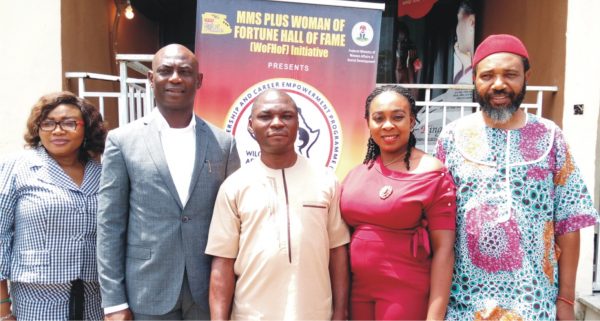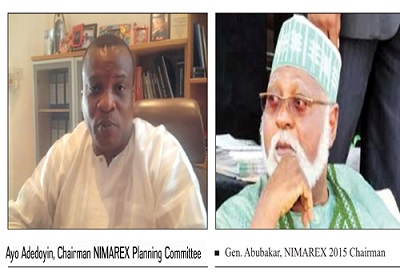Maritime Industry In 2015: The Gloom Ahead

The New Year is better seen in the mirror of the out gone year in terms of what obtained and the achievements made. This approach will help to review the structures put on ground that would make the New Year either a success or failure.
In the maritime sector, the same parameter applies, it helps to project into the likely achievements or otherwise that year 2015 will experience. The projections stem from all the basic facilities, policies, human development and other efforts employed into creating a cushioning effect for the year 2015.
They also include some of the expectations of the stakeholders that were not met. That is, the critical measures expected of the government to put in place to energize the industry and to create an enabling environment for operators that were not utilized that could jeopardize the prospect of the New Year.
Some of the inconsistent policies of the government form part of the factors militating against the well being of the sector as well as some legislative failures and executive bias as conspicuous in the Ports and Harbour Bill and the National Transport Commission bill that have been with the National Assembly without attention.
Essentially, the industry witnessed a lot of brainstorming last year that would have been enough to solve the perennial problems in the port as well as creating a new atmosphere that will engender the much anticipated change in the sector.
However, the application of such resolutions from such deliberations depends largely on the willingness of the government’s sole desire to adopt them. Aside that, the interest of the government also counts in the adoption of such resolutions.
As usual, stakeholders have reflected on the past year and the activities inherent and have come up with diverse but opinions on what they think 2015 holds for the maritime industry.
In the face of the drop in the price of crude oil and the fall in the value of the Nigerian Currency, some stakeholders believe that the industry will witness some upsurge in business transactions and development according to what some of them describe as ‘the efforts put in place last year.’
On the other hand, some argued that the meltdown will definitely have adverse effect on the sensibility and mentality of people especially when there is no money to pursue their course.
Rev. Jonathan Nicole is the President; Shippers Association of Lagos State (SALS), he believes that attitudinal change among the industry players is one of the factors that can bring about a positive impact on the industry.
Reeling out what he thinks will make the year worthwhile; Nicole stated that he looked forward to a 2015 where there will be no charges for services not rendered as well as reduction in the charges at the port.
In his words, “We call for attitudinal change because this is very paramount, we also all for reduction in pricing.
You don’t get to pay when there is no service rendered, when shippers don’t have to pay during public holidays.
“We want a situation where the Nigeria Customs will have an electronic manifest and we suggested that we needed a miniature video of all the contents of the containers they are bringing into this country that will help in accelerating the release of cargo.”
According to him, if all these anomalies can be dealt with in the port, 2015 will witness a great deal of business successes.
He predicted that the year will be fraught with litigation as a result of the case between the Nigerian Shippers’ Council and the Sea Terminal Operators Association of Nigeria (STOAN) in one hand and the Association of Shipping Agencies (ASLA) on another hand.
He believed that the case has served as an eye opener for the industry operators to seek redress in the court whenever they feel their rights were trampled upon.
The President, Maritime Correspondents’ Organization of Nigeria (MARCON), Ismail Aniemu is hopeful that changes will come in 2015 in many areas. He said, “Looking at the National Seafarers Development Program (NSDP) initiated and promoted by NIMASA, more people will graduate under the scheme and that will be a plus for Nigeria.”
He believes the year is loaded as the Nigeria maritime University is set to admit students into the institution at the undergraduate level anytime from now.
He however regretted that some of the expectations of the stakeholders were not met in the areas of release of Cabotage Vessel Financing Fund (CVFF), the appointment of the Shippers’ Council as economic regulator without a legislative power among other issues.
He therefore adduced the inability to achieve some of the expectations to both legislative and executive lapses.
He said, “I want you to appreciate that some of the things that stakeholders anticipated wee stalled by process that have to do with the legislature like the bill for National Transport Commission, the Ports and Harbour bill that are still with the National Assembly.”
He stated that the bills would have gone a long way to position the industry even as he said that executive delays like the disbursement of the CVFF which he said that DG of NIMASA said the agency had compiled names and perfected its own part and sent to the Ministry.
According to Tino Buoro, a maritime journalist, he believes that the industry will experience a lot of scramble I the year 2015 because of the financial meltdown, the drop in crude oil price.
Buoro, an erstwhile journalist said that the scramble will lead to lots of hurt and when there is hurt without money for litigation, people will resort to self help “So, there will be a lot of street fights.”
He added that the industry would experience some boost because of the regulatory frame work put on ground by the government to usher sanctity into the sector.
He stressed, “I expect that the maritime industry especially in the area of cargo interest should boom because with the coming in of Shippers’ Council as industry regulator, all of those unorthodox practices, bills (charges) that you cannot explain will no longer come on stream and the freight forwarders too will be more regulated.”
Buoro therefore called on the maritime community to latch on the Alternate Dispute Resolution (ADR) as a means of resolving their differences instead of going through the tortuous journey of litigation which is more time-consuming and money spinning.
All the factors mentioned by the stakeholders are germane to the development of the industry only if the government is genuinely committed to the sector which has received little or no attention from the government.
Recently, a stakeholder was happy that the drop in oil price will now force the government to focus more attention on the maritime which he said will serve as an alternative for the oil which is the mainstay of the Nigerian economy.
Apart from electioneering, the maritime sector should be the second most focused matter in the country in 2015. It has become so important because the oil has dropped and the government is supposed to look inward for a supplement to the oil crash.
It is also important so that the austerity measure by the government will not send an average Nigerian living in the city back to the village because of exorbitant tax that will be levied on the already impoverished citizens.







